In 2023, the HR software arena for startups is evolving with remarkable dynamism and innovation. Such platforms are essential for a range of HR functions, from managing employee leaves to enhancing the efficiency of recruitment processes. Here, we delve into the seven top HR software platforms ideal for startups, each offering unique features to address various HR needs.
1. Day Off Leave Tracker
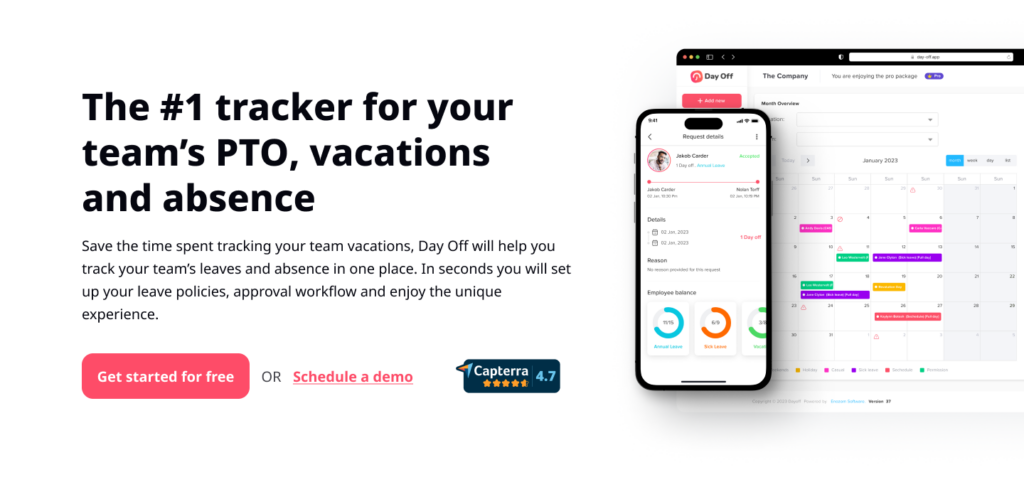
Day Off Leave Tracker stands out as an exceptionally user-friendly and efficient platform for managing employee leaves, tailored specifically for the dynamic needs of companies of various sizes. It’s designed to facilitate a seamless and transparent leave management process, which is vital for maintaining operational efficiency and employee satisfaction in fast-paced startup environments.
This platform excels in its ability to automate and streamline the entire leave management process. From handling simple day-off requests to managing more complex leave scenarios, Day Off Leave Tracker ensures that all leave types are accurately tracked and managed. Its intuitive interface allows both employees and managers to handle leave requests with ease, fostering a positive and efficient work culture.
The system’s capability to customize leave policies is particularly beneficial for startups, which often require flexibility to accommodate diverse workforce needs and unconventional work patterns. Whether it’s adjusting leave accrual rates, setting up different types of leaves (such as sick leave, personal leave, or sabbaticals), or configuring region-specific holidays, Day Off provides the agility startups need.
Moreover, its real-time leave balance updates are a significant feature. Employees can instantly check their available leave balance, reducing uncertainty and the need for manual inquiries. This feature enhances transparency and empowers employees to plan their leaves better, contributing to higher employee satisfaction and reduced disruption in work schedules.
By offering these robust features, Day Off Leave Tracker not only simplifies leave management but also plays a crucial role in enhancing employee satisfaction and operational efficiency. Its focus on flexibility, user-friendliness, and integration makes it an ideal choice for startups looking to streamline their leave management processes.
2. Kissflow
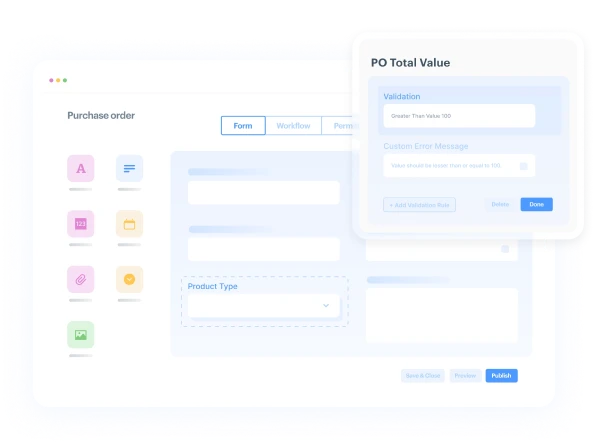
Kissflow is an all-in-one HR software designed for the modern workplace. It’s known for its user-friendly interface and flexible features, suitable for startups looking for scalable HR solutions.
Key Features:
- Automated HR Processes: Streamlines tasks like onboarding, time-off requests, and performance reviews.
- Customizable Workflows: Allows startups to tailor HR processes according to their specific needs.
- Integrated Analytics: Offers insights into HR operations, helping in making data-driven decisions.
Cons:
- Limited Customization: Some users find the customization options inadequate for complex HR needs.
- Learning Curve: New users might require time to familiarize themselves with the platform’s full capabilities.
- Performance Issues: Users have reported occasional sluggishness, especially when handling large amounts of data.
3. Gusto
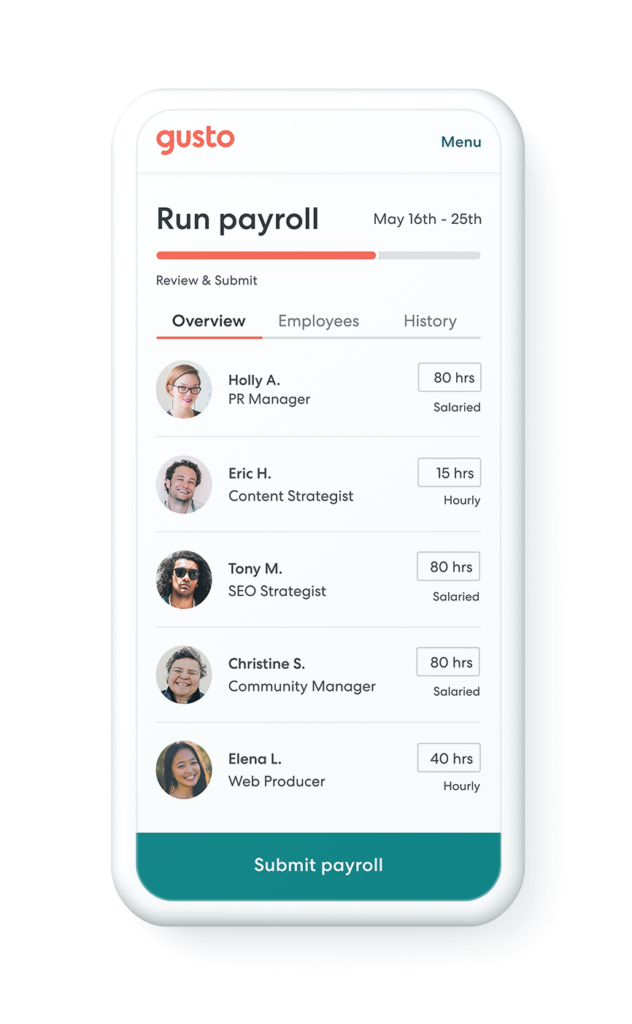
Gusto is a comprehensive platform primarily focused on payroll, benefits, and HR management. It’s ideal for small to medium-sized startups seeking a straightforward, intuitive solution.
Key Features:
- Full-Service Payroll: Automates tax filings, paychecks, and year-end forms.
- Benefits Administration: Simplifies managing health insurance, 401(k), and other employee benefits.
- HR Tools: Includes hiring and onboarding tools, time tracking, and compliance support.
Cons:
- Limited International Capabilities: Not ideal for companies with a global workforce as its features mainly cater to U.S. regulations and standards.
- Basic HR Functions: While excellent for payroll, its HR functionalities are not as comprehensive as other dedicated HR platforms.
- Cost: Can be expensive for startups on a tight budget, especially when adding multiple features.
4. HiBob
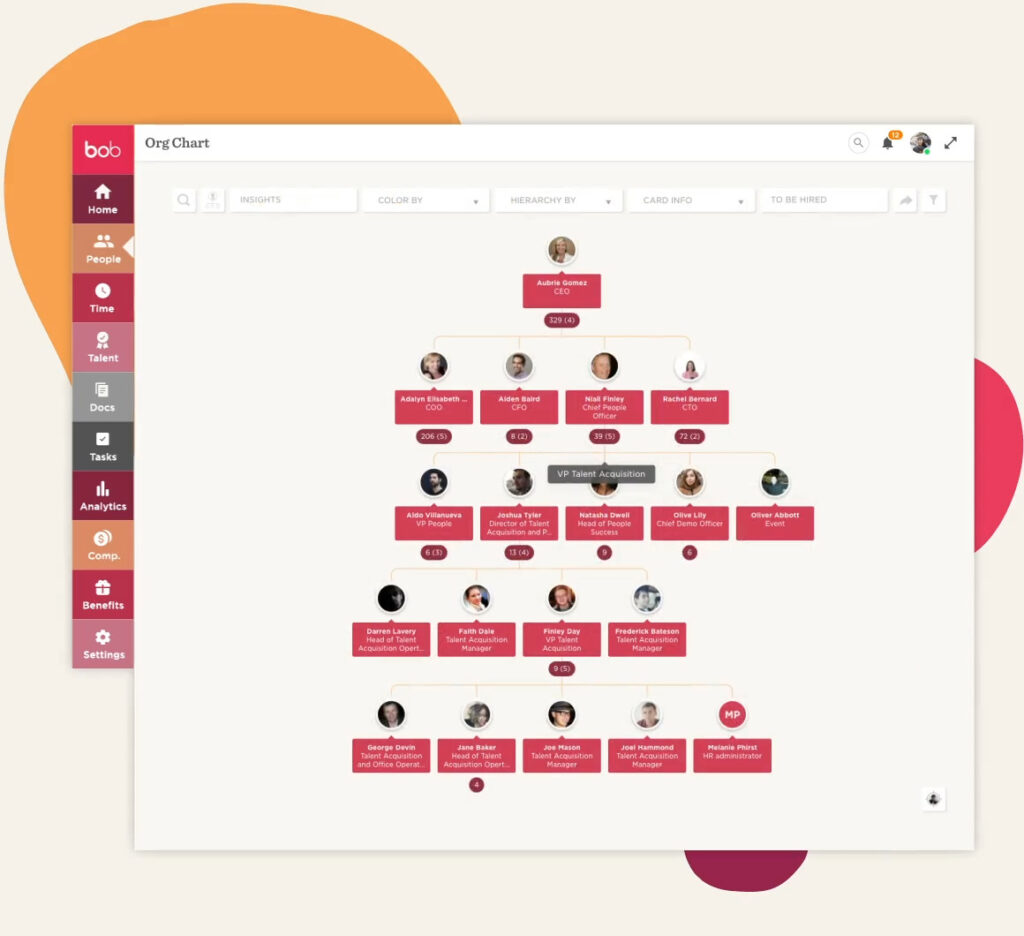
HiBob, often referred to as Bob, offers a modern approach to HR with its visually appealing and user-friendly platform. It’s designed for fast-growing companies that need to manage a global workforce.
Key Features:
- People Management: Efficiently handles onboarding, attendance, and personal information.
- Time and Attendance Tracking: Keeps track of employee hours and vacation days.
- Robust Reporting: Delivers in-depth reports on HR metrics for informed decision-making.
Cons:
- Complex Interface: Its modern interface can be overwhelming for users not accustomed to such designs.
- Integration Limitations: Some users have reported challenges in integrating HiBob with other business systems.
- Pricing Structure: The pricing can be on the higher side for very small startups.
5. Paycom

Paycom provides a comprehensive, integrated HR and payroll technology. It’s a great fit for startups needing a more in-depth approach to employee lifecycle management.
Key Features:
- Self-Service HR Tools: Empowers employees to manage their own HR data.
- Payroll and HR Management: Seamless integration between payroll and other HR functions.
- Talent Acquisition and Management: Streamlines the hiring process and tracks employee performance.
Cons:
- User Interface: Some users find the interface less intuitive and outdated compared to newer HR platforms.
- Complexity: The comprehensive nature of the tool can be overwhelming for small teams without a dedicated HR professional.
- Customer Support: There have been reports of inconsistent customer service experiences.
6. Workable
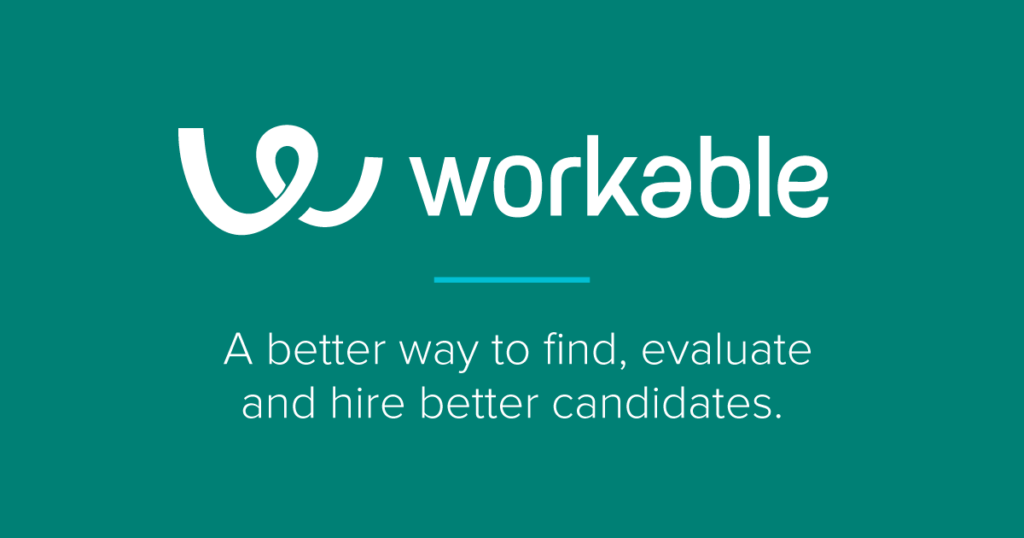
Workable is primarily a recruiting software that also offers broader HR functionalities. It’s perfect for startups focusing on scaling up their teams efficiently.
Key Features:
- Advanced Recruiting Tools: Streamlines sourcing, tracking, and evaluating candidates.
- AI-powered Search & Advertising: Enhances the ability to find the right candidates.
- Collaborative Hiring: Facilitates team involvement in the hiring process.
Cons:
- Focused on Recruiting: Its primary focus on recruiting may mean it lacks depth in other HR areas.
- Cost Per Job Posting: The pricing model can get expensive for startups with frequent hiring needs.
- Limited Reporting Features: Reporting and analytics tools are not as advanced as some competitors.
7. Zoho Recruit
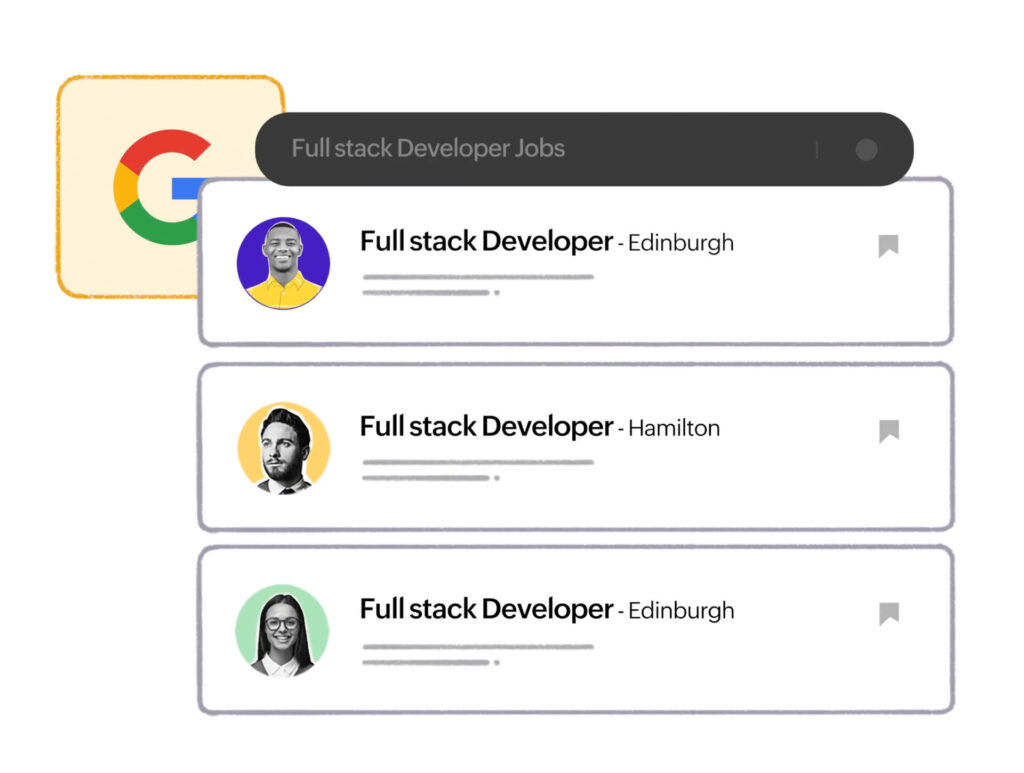
Zoho Recruit caters to both in-house recruiters and staffing agencies. It combines a powerful suite of tools to simplify the hiring process in startups.
Key Features:
- Applicant Tracking System (ATS): Manages candidate applications and streamlines the recruitment process.
- Customizable Workflows: Tailors the recruitment process to suit specific business needs.
- Candidate Sourcing: Helps in finding candidates through various channels, including social media.
Cons:
- Learning Curve: The wide range of features can be overwhelming for new users.
- Integration Challenges: While it integrates with other Zoho products well, integration with external tools can be less smooth.
- Customization Limitations: Customization options might not be sufficient for more complex or unique HR processes.
8. BambooHR
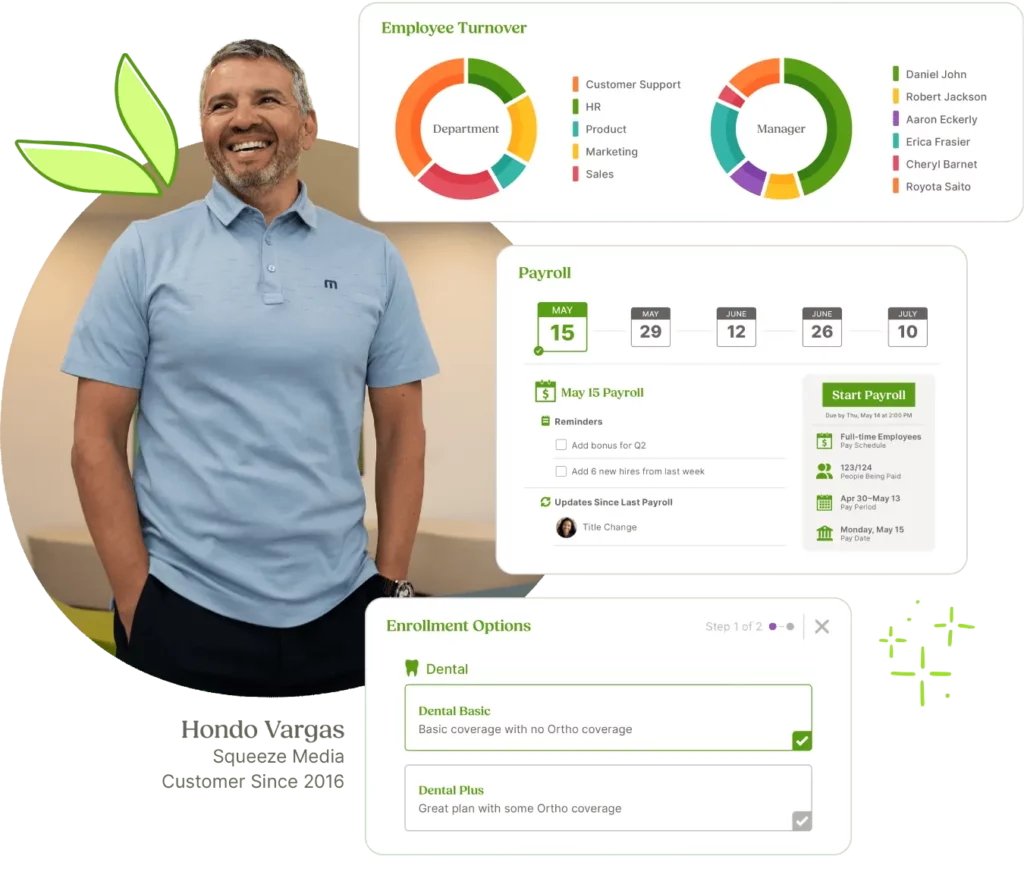
BambooHR is a popular choice among startups for its simplicity and focus on small and medium-sized businesses. It offers a comprehensive set of tools for HR management.
Key Features:
- Employee Information System: Keeps track of all employee information in one place.
- Performance Management Tools: Helps in tracking and improving employee performance.
- Easy-to-Use Interface: Known for its user-friendly design, making HR tasks straightforward.
Cons:
- Limited Advanced Features: It may not offer some of the more sophisticated features needed by larger or rapidly growing companies.
- Reporting Capabilities: Users have reported that the reporting function could be more robust and flexible.
- Mobile App Functionality: Some features available on the desktop version are not as fully functional on the mobile app.
Each of these HR software platforms offers unique strengths, making them suitable for various startup needs. When choosing an HR software, consider your company’s specific requirements, growth plans, and the level of support you need to manage your HR tasks efficiently.
